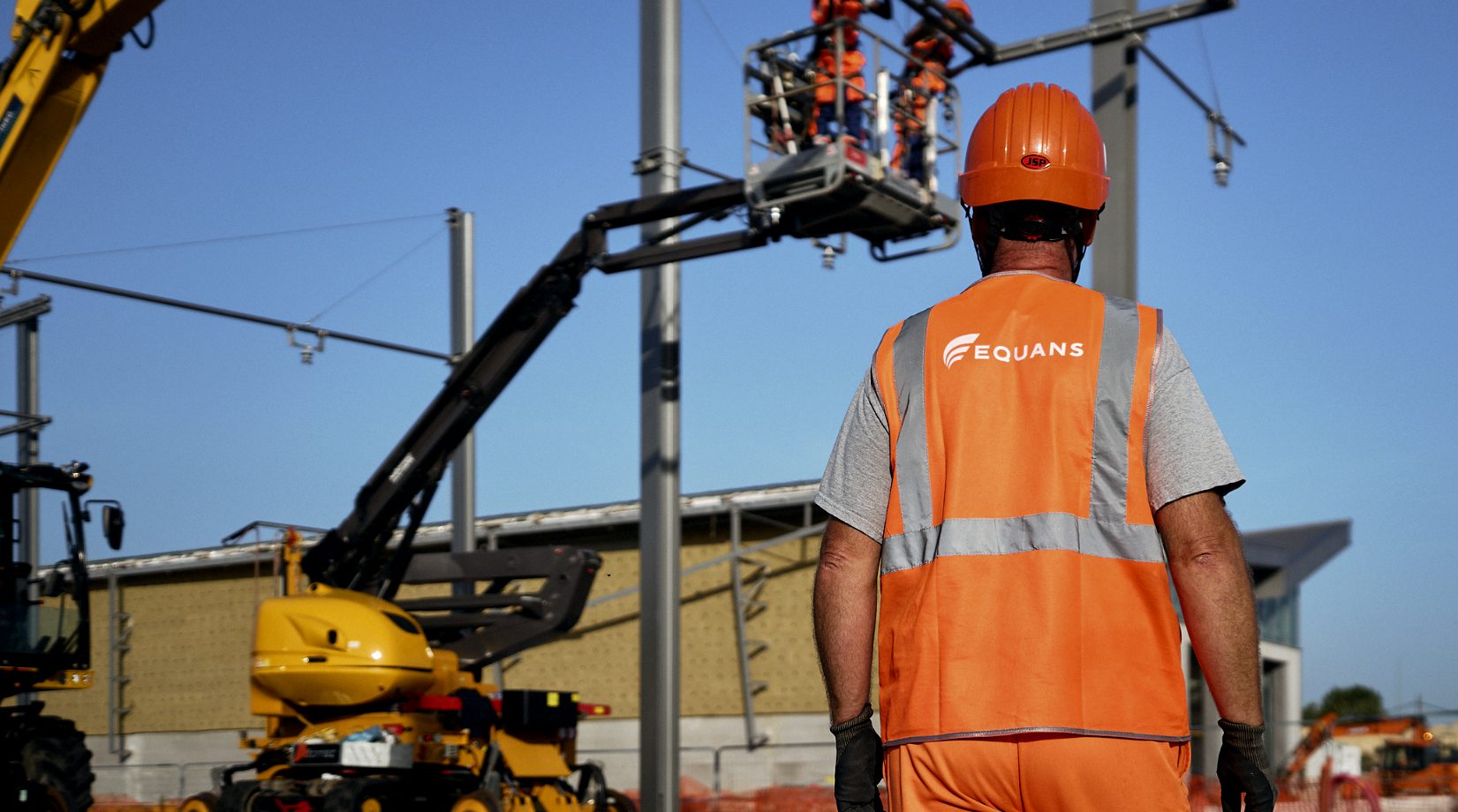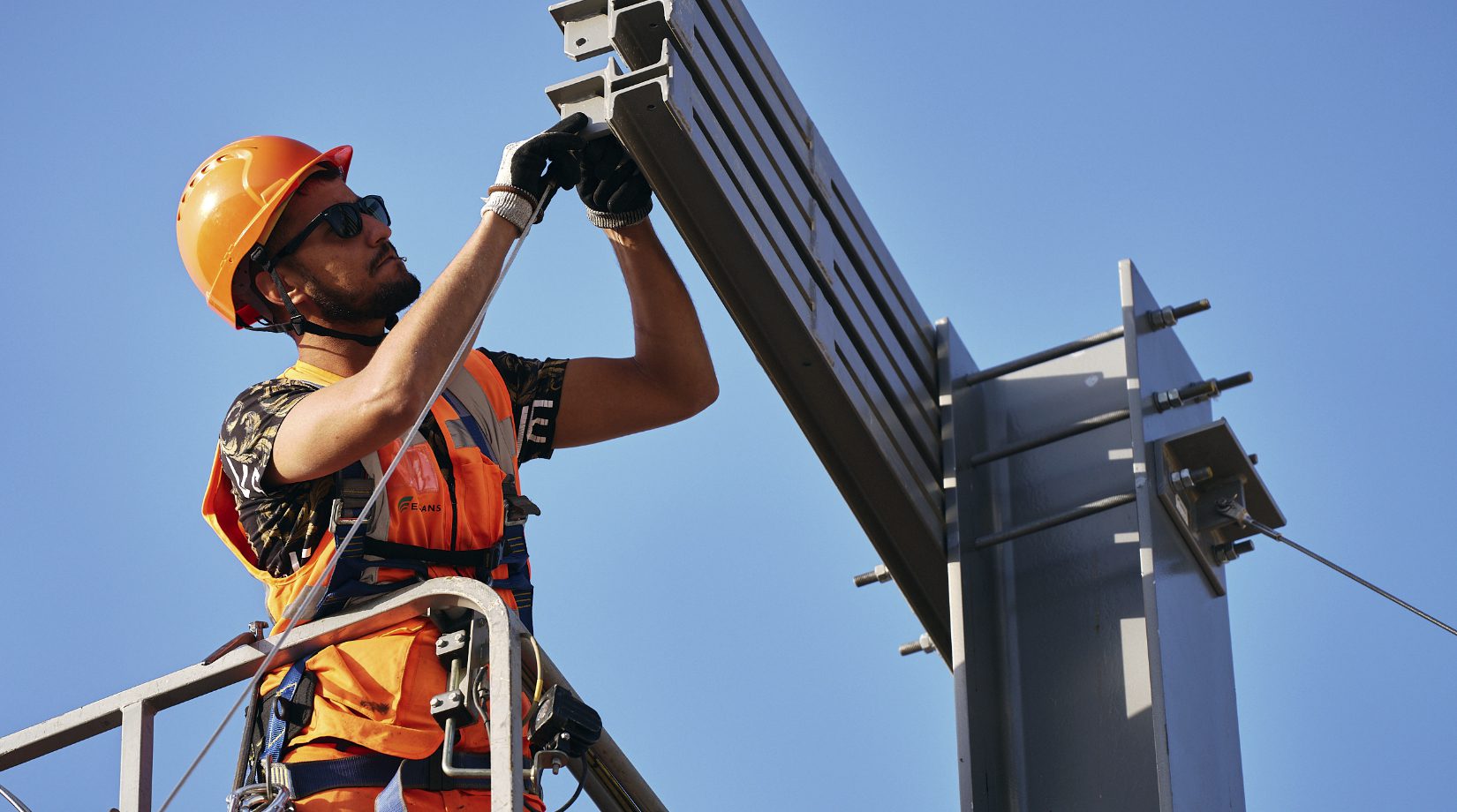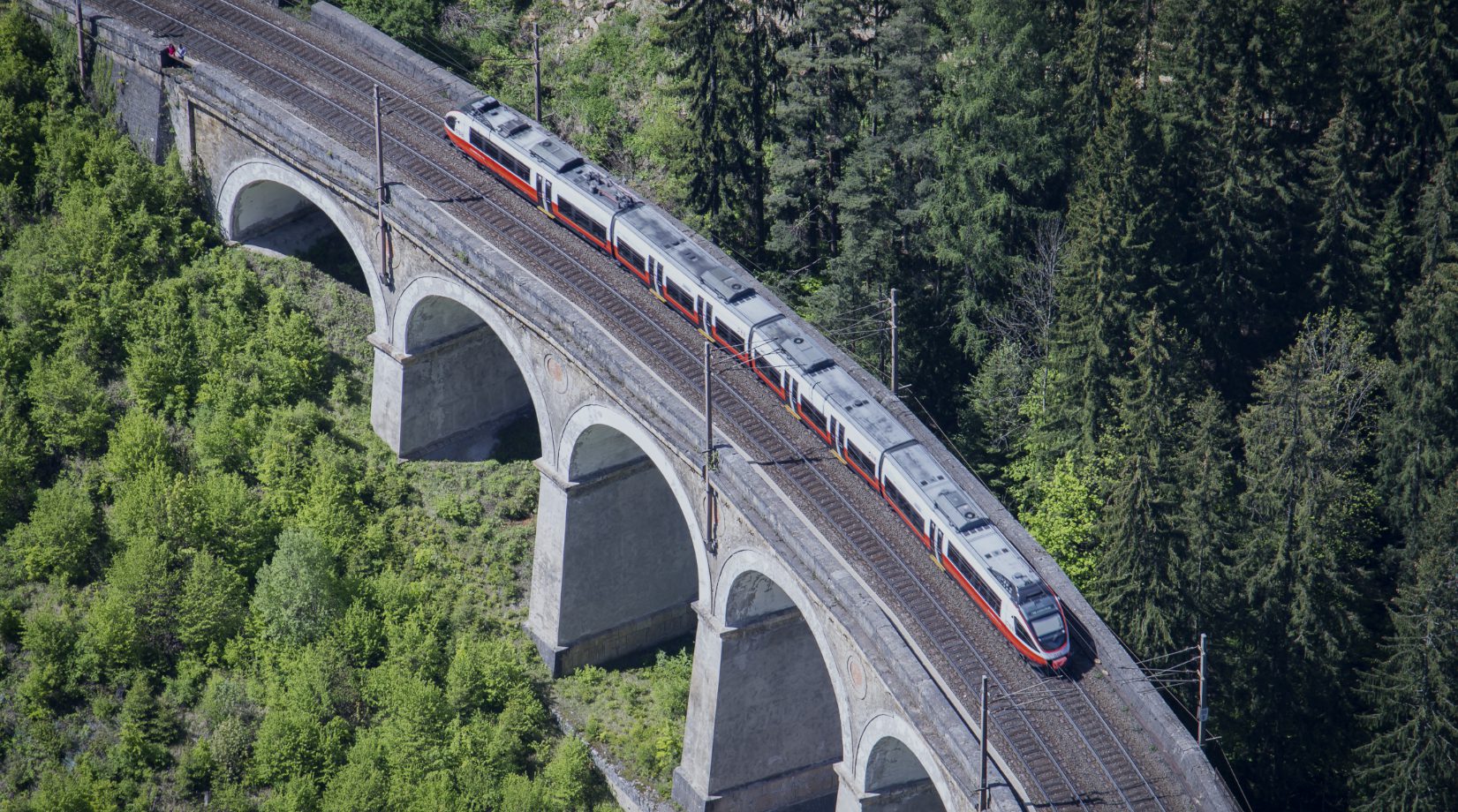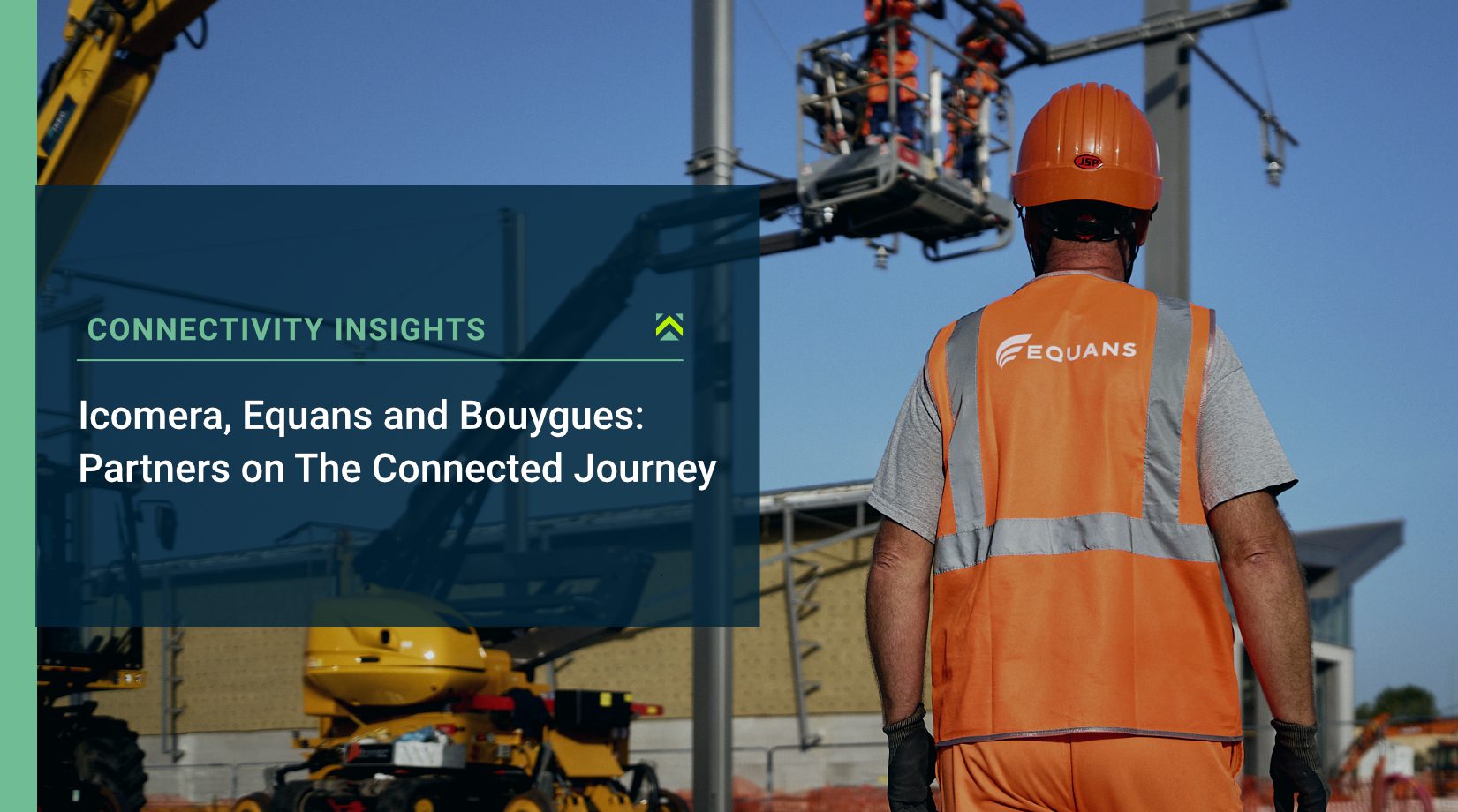
Living through an era of unprecedented global challenges, it’s imperative that we work together in pursuit of society’s key goals. A collaborative approach will help leverage the collective expertise, resources, and innovation of stakeholders across multiple sectors and internationally.
As part of the Equans group and the wider Bouygues organisation, Icomera has the scale and reach to operate locally in all geographic regions, assisting transport operators and authorities in their pursuit of core aims. By fostering a culture of partnership and cooperation to address the complex issues that we collectively face, we can pave the way for a more sustainable, resilient tomorrow.
Why Green Mobility Matters
Human-induced emissions of greenhouse gases are driving global warming; 2023 was the warmest on record by a large margin[1], and the 10 warmest years in historical record have all occurred in the past decade (2014-2023)[2]. Rising temperatures lead to more frequent and severe natural disasters, as well as disrupting agricultural systems, exacerbating food insecurity, and causing economic instability.
The transport industry is a key carbon dioxide (CO2) contributor, accounting for around one-fifth of total global emissions[3]. However, by moving more people using fewer vehicles, public transport is by far the most sustainable means of transportation. Train travel, for example, reduces carbon emissions by two thirds compared to cars[4], and is recognised as being the least emissions-intensive mode of passenger transport[5].
Armed with these facts, many passengers are becoming increasingly environmentally conscious with how they choose to travel; night trains are being revived across Europe as an alternative to flying[6], and a recent survey found that 76% of respondents want more sustainable travel options to be made available to them[7].
It’s somewhat surprising then that a third of nations currently neglect public transport in their climate action plans[8]. According to a report published by the International Association of Public Transport (UITP), “doubling the use of public transport and designing cities around it to reduce car dependency would cut urban transport emissions by more than half”[9].
Offering affordable, attractive, and viable public transportation options will be vital in continuing to encourage society’s shift in travel habits away from individual travel modes and towards mass public transportation systems such as trains, trams, and buses.
Having identified the uptake of public transportation as a major factor in improving global environmental sustainability, Icomera has actively promoted green mobility since our founding back in 1999. By offering Internet-enabled onboard services, we make public transport more productive and enjoyable compared to less sustainable means of travel, encouraging its growing use around the globe, and helping power the transition towards a carbon-neutral world.

Equans & Bouygues: A Shared Commitment to Sustainability
The magnitude of the climate challenge undoubtedly requires solutions to be implemented with the appropriate levels of scope, aspiration, and innovation. Achieving successful decarbonisation globally will require a coordinated approach involving collaboration amongst nations, industries, organisations, and individuals.
It’s also important to recognise that the future of transport will not develop in isolation from other sectors. Given that there is an undeniable interplay between the different areas of smart connected modern living, a holistic approach will provide the strongest possible platform for success.
This is where Icomera benefits from the foresight and scale afforded by being a wholly owned subsidiary of Equans, and part of the wider Bouygues group.
With almost 90,000 employees working to connect, power, and protect buildings, cities, and infrastructure, Equans supports customers as they transform their energy systems, digital technologies, and industries. As the world leader in multi-technical services, its organisation is built around two key unique strengths: (1) Having a strong presence across dense local networks, with the global reach to deliver solutions to clients worldwide – And (2) Having a wide range of expertise across various specialised sectors to meet the scale and scope of the challenges that we face.
Through its dedicated transport division (of which Icomera is a part), Equans provides integrated and tailor-made turnkey solutions for the market. By leveraging the collective knowledge of over 2,700 employees via a single point of contact, Equans Transport simplifies the deliverability of large and complex transit projects, providing clients with effective, innovative solutions optimised for their specific problems.
As Pierre Hardouin, CEO of Equans France, explains: “Our agile approach, combined with our extensive expertise and passion for innovation, positions us as a trusted and reliable partner for a variety of clients. We specialise in delivering complex solutions in transport electrification, electro-mechanical installations, signalisation, and telecoms, ensuring these systems remain in optimal operational conditions.
“Icomera’s focus on mobile connectivity perfectly complements Equans’ broader vision for the digital transformation of public transportation. Together, we are redefining the passenger experience, making every journey more cost-effective for transport operators, and paving the way for a more sustainable future.”
Beyond Equans, the Bouygues group as a whole totals more than 200,000 employees working across six subsidiaries present in over 80 countries. Other subsidiaries within the group include the transport infrastructure and civil engineering firm Colas, and the mobile phone and Internet Service Provider (ISP) Bouygues Telecom. The diverse range of sectors that the group covers make it financially resilient to changing economic conditions and other external factors.
Bouygues’ ownership structure is based on two long-standing core shareholders: (1) SCDM, a simplified joint stock company controlled by Martin Bouygues, Olivier Bouygues and their families – And (2) Bouygues’ employees, through several dedicated mutual funds. As a business which is still family-run more than seven decades after its founding, Bouygues works to create value over the long term for its clients and stakeholders, planning in terms of decades and centuries rather than only months and years.
Tackling the climate emergency is also an important part of the group’s overall strategy; Bouygues has committed to achieve its decarbonisation targets by 2030 to mitigate the impact of its activities. As the group’s Chairman Martin Bouygues states: “Corporate social responsibility (CSR) is a key priority. We regard CSR not as a constraint, but as an opportunity to transform our business and to set us apart from our competitors.”

Equans Transport: Together on the Path of Progress
Icomera’s partner entities within the Equans Transport group augment our offering with additional digital solutions and expertise in infrastructure, a combination which allows the group to address transport systems as a whole.
For instance, Ineo Systrans’ NAVINEO solution integrates Computer Aided Dispatch & Automatic Vehicle Location (CAD/AVL) systems for public transit alongside other functionalities such as real-time charge monitoring for electric buses and eco-driving assistance to support green mobility.
“Whether it be through electric buses or other environmentally conscious transport modes, NAVINEO offers turnkey intelligent transportation systems and services to help build smarter cities”, comments Baudouin Huon, CEO of Ineo Systrans.
When it comes to delivering sustainable transport infrastructure, Equans subsidiaries including the Powerlines Group are leading the way. As one of Europe’s main suppliers in railway electrification, Powerlines designs, installs and maintains electrification systems for railway networks and provides cutting-edge expertise in both urban modes of transport (metros, tramways, and buses) and intercity modes (conventional and high-speed lines).
Berthold Bartsch, CEO at Powerlines Group, explains: “By installing electrical infrastructure, Powerlines makes a key contribution to ecologically sustainable economic development. As a system supplier, we’re proud to cover the entire spectrum from consulting, engineering, and design, through to the installation and maintenance of infrastructure facilities.”

Conclusion: Creating a Socially Responsible Future
As a company, at Icomera we’re extremely conscious of our own environmental footprint and actively work to reduce it, both internally and for our clients and their passengers. Our commitment is evidenced in the design of our products, which prioritise energy efficiency, durability, and recyclability, as well as our ISO 14001 certification which underscores our dedication to minimising the use of environmentally harmful materials and ensuring their responsible disposal.
But working as part of the Equans and Bouygues organisation allows us to push even further in our ambitions: Through the unified vision and scale of the entire group and its entities, we are working to build a zero-carbon future, where transportation is not only efficient and convenient but also environmentally friendly and socially responsible.
With public transport increasingly seen as the custodian of a more sustainable era, Icomera and our partners in Equans and Bouygues are well positioned to accelerate the industry’s digital transition, delivering smarter, safer, greener mobility.
This article features in Icomera’s 48-page industry report “Connectivity Insights 2024”.
Read the full report below or via this link to find out more about the expanding role of connectivity in supporting the rail industry’s goals, and the adoption of new technologies and innovations…
References:
[1] https://www.theguardian.com/environment/2024/jan/09/2023-record-world-hottest-climate-fossil-fuel
[2] https://www.climate.gov/news-features/understanding-climate/climate-change-global-temperature
[3] https://ourworldindata.org/co2-emissions-from-transport
[4] https://www.nationalrail.co.uk/travel-information/sustainability/green-train-travel/
[5] https://www.iea.org/energy-system/transport/rail
[6] https://www.bbc.co.uk/news/business-64950747
[7] https://www.weforum.org/agenda/2023/04/survey-of-travelers-finds-76-want-more-sustainable-options/
[8] https://www.intelligenttransport.com/transport-news/151425/one-third-nations-neglect-public-transport-climate-action-plans-uitp-report/
[9] https://cms.uitp.org/wp/wp-content/uploads/2023/12/Analysis-report-for-COP28-1.pdf

